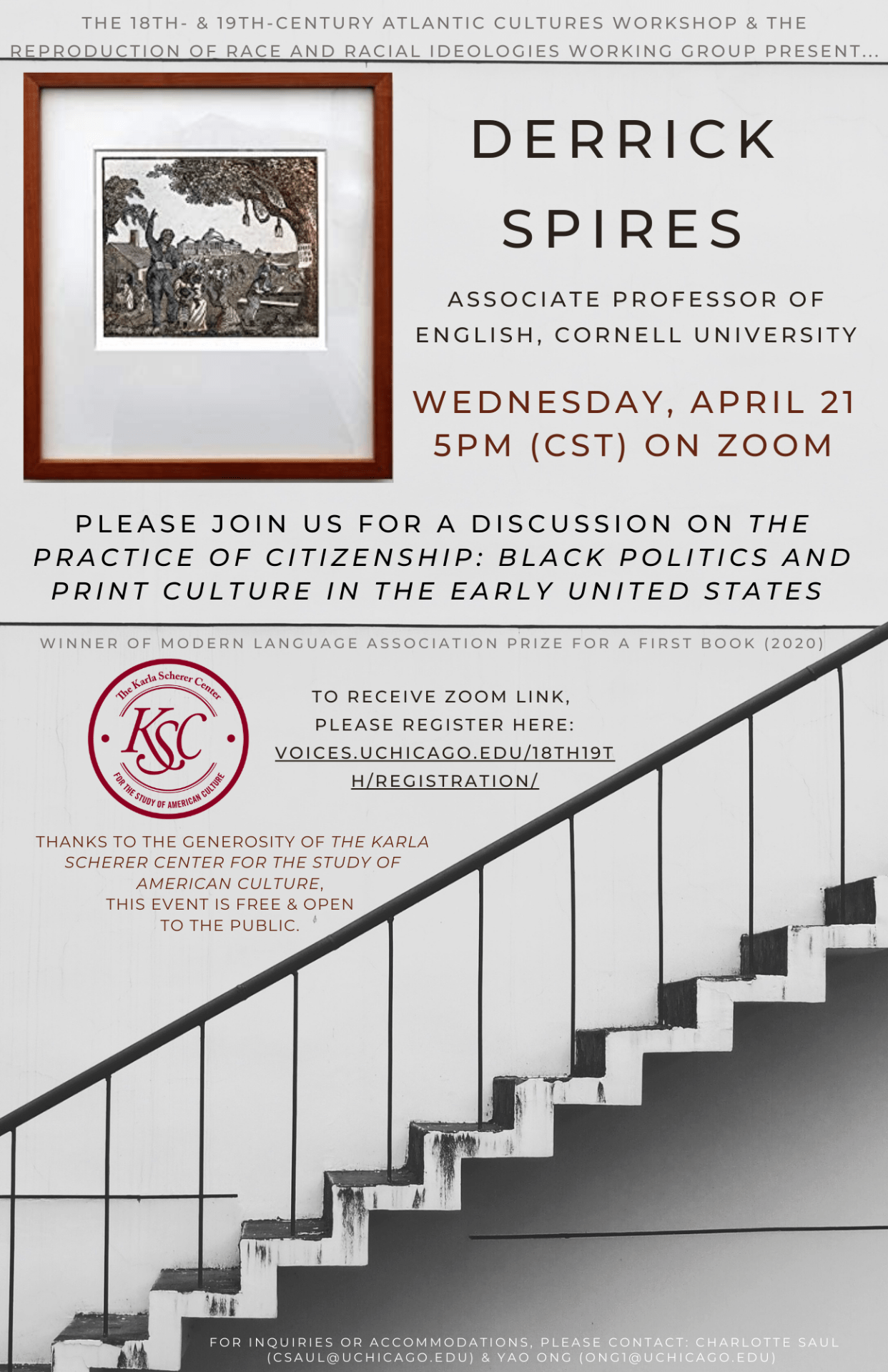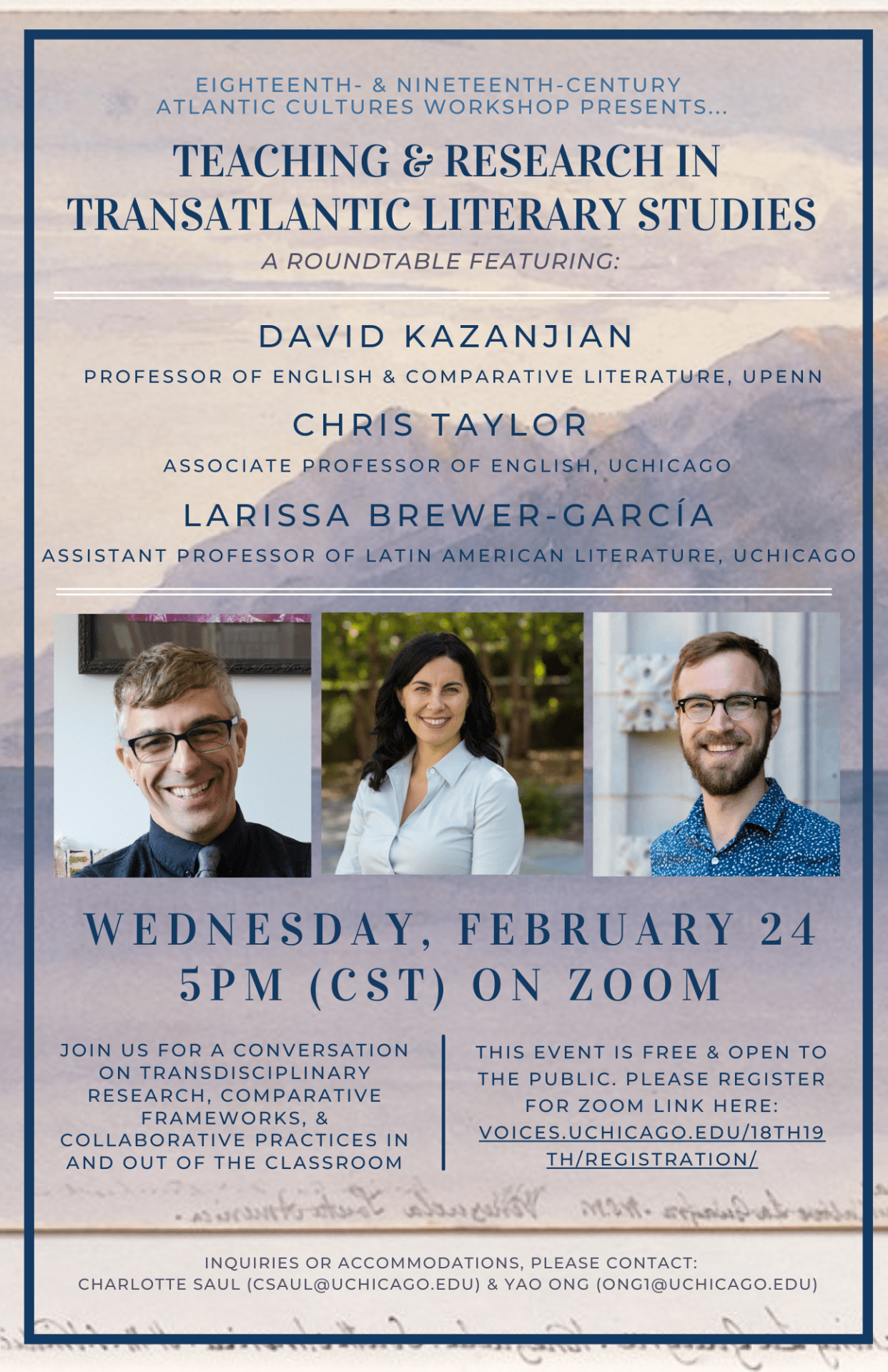 “Tracing the Vévé, Healing the Nation: Exploring Bakongo Cosmologies in Haitian Vodou”|| Mariah A-K Bender
“Tracing the Vévé, Healing the Nation: Exploring Bakongo Cosmologies in Haitian Vodou”|| Mariah A-K Bender
MAPH Student, University of Chicago
Wednesday, January 12, 2022 — Postponed
This paper explores the connections between Bakongo cosmologies on the role, function, and manifestation of the spirit in the Petwo rites of Haitian Vodou. I argue that that the Bakongo conceptuality of the spirit is the realization of the human experience of enslaved Africans in Haiti. As such, the spirit is liberator, life-giving, life-sustaining. Finally, the spirit and the meaning of spirit has historically traveled with the African people regardless of nationality, and is best demonstrated through the art of Vodouisants and even African-Americans. Ultimately, the ability for the conceptualization of spirit, ancestor, and connection to one’s African identity to endure historic oppression and imperialism is proof that the African spirit lives as the African people live.
“Camping Empire: Masculinity, Melophilia, and the Castrato Voice” || Devon Borowski
PhD Candidate, Music, University of Chicago
For eighteenth-century Britons, the singing voice was a source of erotic fixation and moral controversy, as well as a critical index of the body. As imperial focus shifted eastward, the much-desired and long-despised castrato overlapped with the vogue for the arch sensibilities of the Gothic and the Orientalist, opening new possibilities for aural engagement with empire.  This chapter positions Camp as an alternative mode of aurality emerging in this moment. The argument centers around absentee planter William Beckford and the performance of a cantata occasioned by his twenty-first birthday. Il tributo (1781) urged the effeminate Beckford to embrace the masculine virtues of restraint, magnanimity, and patriotism, though its stark conceit was mediated by the decadent voices of the famed castrati Pacchierotti and Tenducci. Carnal materials of song obscured words, producing a conflicting representation of English manhood amid a foreign and eroticized soundscape that Camped imperial masculinity. Heard in context, the scene frames an ideal of British masculinity in the late eighteenth century through the relationship between voice and ear. Moreover, it suggests that the sounding voice takes on a power beyond the metaphor of political representation to construct and position bodies and empires.
This chapter positions Camp as an alternative mode of aurality emerging in this moment. The argument centers around absentee planter William Beckford and the performance of a cantata occasioned by his twenty-first birthday. Il tributo (1781) urged the effeminate Beckford to embrace the masculine virtues of restraint, magnanimity, and patriotism, though its stark conceit was mediated by the decadent voices of the famed castrati Pacchierotti and Tenducci. Carnal materials of song obscured words, producing a conflicting representation of English manhood amid a foreign and eroticized soundscape that Camped imperial masculinity. Heard in context, the scene frames an ideal of British masculinity in the late eighteenth century through the relationship between voice and ear. Moreover, it suggests that the sounding voice takes on a power beyond the metaphor of political representation to construct and position bodies and empires.
“‘Floating Ground’: Imperial Nationality and Armadale‘s Sensation Plot” || Tyler Talbott
PhD Candidate, English, Northwestern University

an introduction to COVE (Collaborative Organization for Virtual Education)|| Dino Felluga
November 10, 2021 (at 5pm on Zoom)
“Hale Leka: Networks of Letters in Hawai’i” || Samantha Maza
PhD Candidate, English, University of Chicago
Friday, October 29, 2021
*this session was co-hosted by The Native American and Indigenous Studies Working Group at the Newberry Library & Northwestern University
Kānaka Maoli, or native Hawaiians, adopted foreign technologies of written communication into ‘Ōlelo Hawai’i, or the Hawaiian language. The Kingdom of Hawai’i enveloped this technology in pre-existing governmental procedures, as exemplified by how infrastructure andplace names have remained continuous through millennia.  The Hale Leka (Post Office) facilitated communication in a series of structures (stamps, routes, addresses, and letters). These structures were then enfolded into the following government, a coup d’état of foreign businessmen in 1893. Despite legislation forbidding the teaching of ‘Ōlelo Hawai’i in schools, “Ua Mau ke Ea o ka ʻĀina I ka Pono”, or as the state motto loosely translates, “the life of the land is perpetuated in righteousness”. The labor of Kānaka Maoli and allies continues to this day in the infrastructure created by the Hawaiian government. My scope is focused on the post office and postal paraphernalia (stamps, presses, envelopes) in Hawai’i between the years 1850-1959, which spans the postal system in the Kingdom, Republic, and Territory of Hawai’i. Through analyzing the key role of the post office in daily life, my research argues that indigenous knowledge and labor was, and continues to be, represented in the core infrastructure in Hawai’i.
The Hale Leka (Post Office) facilitated communication in a series of structures (stamps, routes, addresses, and letters). These structures were then enfolded into the following government, a coup d’état of foreign businessmen in 1893. Despite legislation forbidding the teaching of ‘Ōlelo Hawai’i in schools, “Ua Mau ke Ea o ka ʻĀina I ka Pono”, or as the state motto loosely translates, “the life of the land is perpetuated in righteousness”. The labor of Kānaka Maoli and allies continues to this day in the infrastructure created by the Hawaiian government. My scope is focused on the post office and postal paraphernalia (stamps, presses, envelopes) in Hawai’i between the years 1850-1959, which spans the postal system in the Kingdom, Republic, and Territory of Hawai’i. Through analyzing the key role of the post office in daily life, my research argues that indigenous knowledge and labor was, and continues to be, represented in the core infrastructure in Hawai’i.
“Extinction of the Heart: Victorian Feminism and the Rise of Eugenic Erotonormativity” || Lee Jasperse
“Troubling Kinship: Imperial Citizenship, Morant Bay, and Eliot’s England” || Rebeca Velasquez
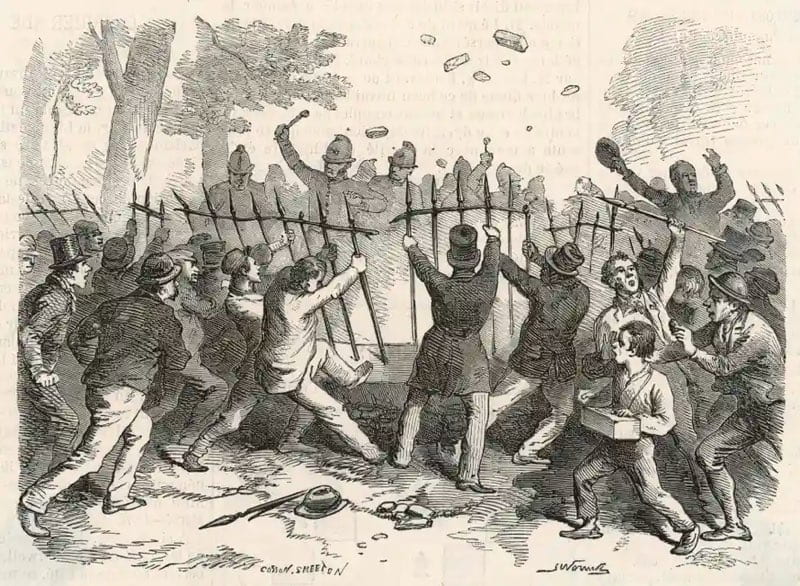 Law: Six Letters to the ‘Daily News’ (1867). This paper brings together Eliot’s novel with Harrison’s letters to show how the political discourse of English reform and the controversy of the Jamaican affair were cut from the same cloth: both were sites for rethinking the legal parameters of political power. Harrison, a radical and known advocate of the franchise, wrote these letters with two purposes in mind: to condemn Eyre’s abuse of the legal system and to explain how this abuse posed a threat to England’s civil liberties during the crucial moment of the introduction of the Second Reform Bill. I turn to Eliot’s Felix Holt to help us understand why Harrison sees colonial insurrection as analogous to the domestic affair of the disenfranchised working class. The novel ambiguously aligns the English working class with colonized racial groups in their struggle for political rights. In its conflation of the English working class with colonized subjects, Felix Holt uses metaphors of racial difference to articulate the slow, educational agenda that Eliot believed should come before the extension of the franchise. What emerges in both texts, I argue, is an unsettling of the concept of the isolated British nation in their meditations on how colonial conflict gave coherence to the internal legal formations of the reform era.
Law: Six Letters to the ‘Daily News’ (1867). This paper brings together Eliot’s novel with Harrison’s letters to show how the political discourse of English reform and the controversy of the Jamaican affair were cut from the same cloth: both were sites for rethinking the legal parameters of political power. Harrison, a radical and known advocate of the franchise, wrote these letters with two purposes in mind: to condemn Eyre’s abuse of the legal system and to explain how this abuse posed a threat to England’s civil liberties during the crucial moment of the introduction of the Second Reform Bill. I turn to Eliot’s Felix Holt to help us understand why Harrison sees colonial insurrection as analogous to the domestic affair of the disenfranchised working class. The novel ambiguously aligns the English working class with colonized racial groups in their struggle for political rights. In its conflation of the English working class with colonized subjects, Felix Holt uses metaphors of racial difference to articulate the slow, educational agenda that Eliot believed should come before the extension of the franchise. What emerges in both texts, I argue, is an unsettling of the concept of the isolated British nation in their meditations on how colonial conflict gave coherence to the internal legal formations of the reform era.“Simulating Modernity: Nineteenth-Century Science Fiction and the World’s Fairs” || Anastasia Klimchynskaya
Wednesday, April 7, 2021
Fiction has been understood to be a kind of v irtual reality (Saler), as well as a “flight simulator” that prepares individuals for life experiences (Oatley, Gottschall). Similarly, sociologists have understood the World’s Fairs as immersive spaces for individuals to practice the social behaviors of modernity (Bennett). However, I argue that both science fiction and the World’s Fairs serve a much more specific function: preparing individuals to exist within technological modernity by immersing them in constructed futuristic worlds, acclimating them to new technologies, and allowing them to practice understanding and parsing technical and scientific information. Focusing on Jules Verne’s Extraordinary Voyages and contemporaneous World’s Fairs, I consequently argue for reading the virtual spaces of science fiction and the physical spaces of these Fairs as functionally equivalent collective “training grounds.”
irtual reality (Saler), as well as a “flight simulator” that prepares individuals for life experiences (Oatley, Gottschall). Similarly, sociologists have understood the World’s Fairs as immersive spaces for individuals to practice the social behaviors of modernity (Bennett). However, I argue that both science fiction and the World’s Fairs serve a much more specific function: preparing individuals to exist within technological modernity by immersing them in constructed futuristic worlds, acclimating them to new technologies, and allowing them to practice understanding and parsing technical and scientific information. Focusing on Jules Verne’s Extraordinary Voyages and contemporaneous World’s Fairs, I consequently argue for reading the virtual spaces of science fiction and the physical spaces of these Fairs as functionally equivalent collective “training grounds.”
“Diction” || Alexis Chema
Assistant Professor, English, University of Chicago
Wednesday, March 10, 2021
This essay is in preparation for The Cambridge Companion to the Poem, a volume dedicated to investigating the conceptual distinction between poetry in general and the individual poem in particular. Broadly speaking, the book examines the poem from three angles: the idea of the poem, the workings of the poem, and the poem’s social and cultural contexts. This essay on the topic of diction is to be part of the collection’s second section, dealing with various technical or formal aspects: image, style, voice, rhythm, etc. It begins with the premise that, like style, diction is a concept ordinarily discussed in relation to poets and movements, rather than single poems. Critics will thus analyze what Derek Walcott’s composite vocabulary says about his attitudes to colonialism, or how Thomas Gray’s use of a vocabulary specific to poetry, of a properly “poetic diction,” separates his work from other modes of discourse, especially those of the working classes. Yet single poems are often celebrated for incorporating a vocabulary uncharacteristic of the poet or movement. Canvassing such issues, this essay examines the tension between conventionality and singularity of diction from the perspective of two limit cases, the poem that creates its own idiosyncratic poetic vernacular out of, in part, genre-specific diction (using the example of Byron’s Don Juan), and the poem that produces strikingly singular effects out of an entirely formulaic hyperlyrical diction (using the example of Catherine Fanshawe’s riddle, known in the nineteenth century as “Lord Byron’s Enigma”).
“Bringing Literature to Life: Literary Performance in the Post-Civil War American Midwest” || Fiona Maxwell
PhD Candidate in History, University of Chicago
Wednesday, February 17, 2021
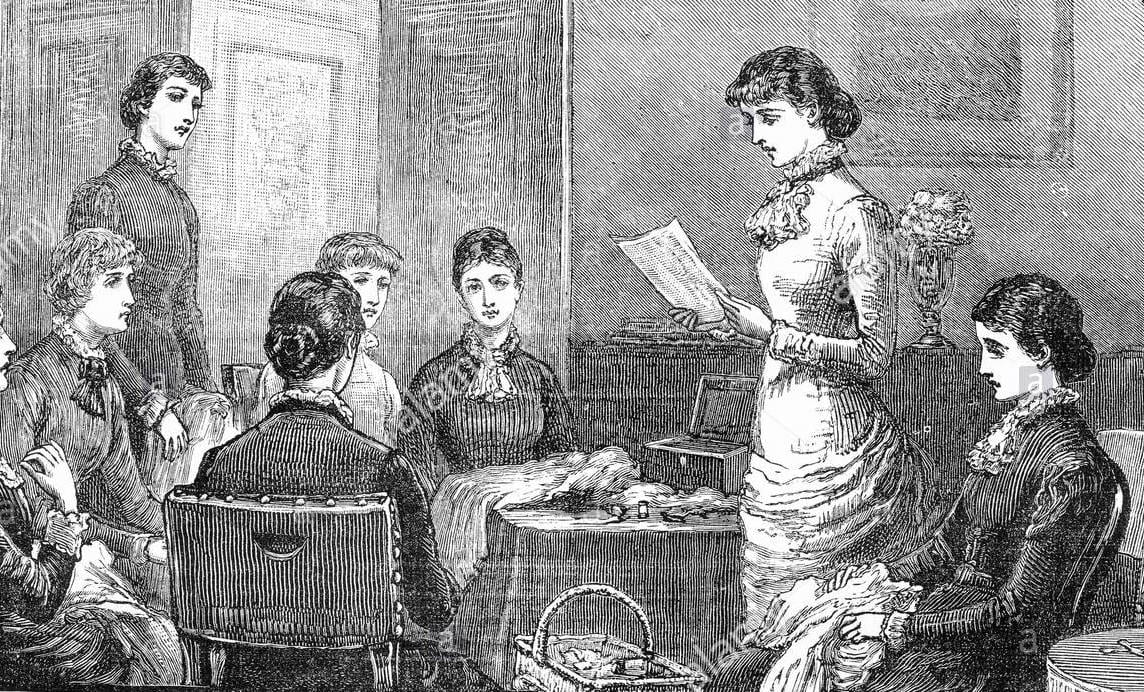 This paper explores the ubiquitous practice of literary performance in the post-Civil War American Midwest. Using Evanston, Illinois and its schools as a case study, I uncover the ways in which students, faculty, and residents mobilized literary and oral culture to create a vibrant community of readers and speakers. Evanston was a very Protestant, very “temperate,” and very talkative town with a zest for literary performance and female education–and a deep moral suspicion of the commercial theater. Evanstonians embraced an alternative form of participatory drama centered on literature and game play. Robert Cumnock, a renowned Scottish-born elocution instructor and dramatic reader, developed a nontheatrical approach to “dramatic expression,” and his women students and graduates established a professional network of performers and educators. Originally my second-year seminar paper, I intend for this essay to feed into the first chapter of my dissertation. My larger project asks why Chicago settlement house workers identified participatory arts activities as solutions to urban problems. Settlement volunteers drew on their childhood and educational experiences with dramatic reading, oratory, and parlor drama to craft programs for urban young people. Exchanges between settlement workers and participants produced a new form of “process-oriented” drama that was eventually codified and embraced by universities, public schools, nonprofits, and professional theater companies. Nineteenth-century women and men believed that literature should be activated and shared–a belief they in turn brought to schools, settlement houses, and performance venues across the country. Through their work, the world of participatory literary performance survives as a foundation for a variety of dramatic pursuits.
This paper explores the ubiquitous practice of literary performance in the post-Civil War American Midwest. Using Evanston, Illinois and its schools as a case study, I uncover the ways in which students, faculty, and residents mobilized literary and oral culture to create a vibrant community of readers and speakers. Evanston was a very Protestant, very “temperate,” and very talkative town with a zest for literary performance and female education–and a deep moral suspicion of the commercial theater. Evanstonians embraced an alternative form of participatory drama centered on literature and game play. Robert Cumnock, a renowned Scottish-born elocution instructor and dramatic reader, developed a nontheatrical approach to “dramatic expression,” and his women students and graduates established a professional network of performers and educators. Originally my second-year seminar paper, I intend for this essay to feed into the first chapter of my dissertation. My larger project asks why Chicago settlement house workers identified participatory arts activities as solutions to urban problems. Settlement volunteers drew on their childhood and educational experiences with dramatic reading, oratory, and parlor drama to craft programs for urban young people. Exchanges between settlement workers and participants produced a new form of “process-oriented” drama that was eventually codified and embraced by universities, public schools, nonprofits, and professional theater companies. Nineteenth-century women and men believed that literature should be activated and shared–a belief they in turn brought to schools, settlement houses, and performance venues across the country. Through their work, the world of participatory literary performance survives as a foundation for a variety of dramatic pursuits.“Liberty, Equality, Disparity: The Paradoxical Politics of French Revolutionary Clothing Rhetoric” || Marissa Croft
“Elemental Technology in Romanticism, or Forms of Hinging” || Jennifer Yida Pan
PhD Candidate in English, University of Chicago
 In this conference paper, I propose to think about elemental technologies in romantic literature. As John Tresch and others have noted, the technological has largely been absent from modern understandings of romanticism. To think about technology, however, is not only to think about machines or, adjacently, science. Technology also involves elements that are much more akin to what we find in the literary. In developing a mode for reading the literary in the technological, I move away from exemplary technological objects and examine instead the elemental components of these objects. What would it look like if, for example, instead of the camera we were to pay attention to the pinhole? Admittedly, the pinhole originated centuries before the camera, but it acquired new form in its camera instantiation. I take as my case study in this paper the broken hinge in Tristram Shandy. A hinge is both a simple machine in itself and a component of more complex technological systems (a door as in Tristram, a kettle, a spaceship). In the literary context of Tristram, the hinge oscillates between literal and metaphorical (door’s hinge and government’s hinge), between representational and functional (representation of hinge and hinge doing the work of narratively hinging parlor and government), in short between its direct instantiation as technical device and its contribution to Tristram’s characteristic meandering style: “Had the parlour door opened and turn’d upon its hinges, as a door should do – Or for example, as cleverly as our government has been turning upon its hinges […].” As sites of convergence between literature and technology, where isolated technological elements such as the hinge can do technological and literary work simultaneously, elemental forms of technology offer a way to think about the technological and the aesthetic in romanticism as concurrent.
In this conference paper, I propose to think about elemental technologies in romantic literature. As John Tresch and others have noted, the technological has largely been absent from modern understandings of romanticism. To think about technology, however, is not only to think about machines or, adjacently, science. Technology also involves elements that are much more akin to what we find in the literary. In developing a mode for reading the literary in the technological, I move away from exemplary technological objects and examine instead the elemental components of these objects. What would it look like if, for example, instead of the camera we were to pay attention to the pinhole? Admittedly, the pinhole originated centuries before the camera, but it acquired new form in its camera instantiation. I take as my case study in this paper the broken hinge in Tristram Shandy. A hinge is both a simple machine in itself and a component of more complex technological systems (a door as in Tristram, a kettle, a spaceship). In the literary context of Tristram, the hinge oscillates between literal and metaphorical (door’s hinge and government’s hinge), between representational and functional (representation of hinge and hinge doing the work of narratively hinging parlor and government), in short between its direct instantiation as technical device and its contribution to Tristram’s characteristic meandering style: “Had the parlour door opened and turn’d upon its hinges, as a door should do – Or for example, as cleverly as our government has been turning upon its hinges […].” As sites of convergence between literature and technology, where isolated technological elements such as the hinge can do technological and literary work simultaneously, elemental forms of technology offer a way to think about the technological and the aesthetic in romanticism as concurrent.“Horizons of Expectoration: Nineteenth-Century Disgust and Its Afterlives” || Zachary Samalin
Assistant Professor, English, University of Chicago
 This paper is a basic overview of my book project, The Masses Are Revolting, which is a history of disgust in the British nineteenth century. The book’s principal ambition is to show how this negative emotion came to play an outsized, volatile part in the emergence of modern British society. I elaborate this cultural history of Victorian disgust across six chapters each focused on a different domain of British society, ranging from the construction of London’s sewer system, the birth of modern obscenity law, and the development of the conventions of literary realism, to the emergence of urban sociology, the rise of new scientific theories of instinct, and the techniques of forced ingestion deployed during the Indian Rebellion of 1857. I want to propose that this array of domains, in addition to being linked together by their shared reliance on a discourse of disgust, can also usefully be understood as forming the core of the nineteenth-century European ideology of civilization. Infrastructural growth and the consolidation of state power, the practices of colonial domination, the radical transformation of metropolitan space, rapid developments in the arts and sciences, including the birth of the social sciences—in the self-congratulatory view of the British nineteenth century, these were all the fruits of civilizational progress, a wave sweeping over Europe at whose crest sat imperial Britain. Thus another of the overarching goals of my book is to analyze the complex historical imbrication of disgust with the concept of civilization.
This paper is a basic overview of my book project, The Masses Are Revolting, which is a history of disgust in the British nineteenth century. The book’s principal ambition is to show how this negative emotion came to play an outsized, volatile part in the emergence of modern British society. I elaborate this cultural history of Victorian disgust across six chapters each focused on a different domain of British society, ranging from the construction of London’s sewer system, the birth of modern obscenity law, and the development of the conventions of literary realism, to the emergence of urban sociology, the rise of new scientific theories of instinct, and the techniques of forced ingestion deployed during the Indian Rebellion of 1857. I want to propose that this array of domains, in addition to being linked together by their shared reliance on a discourse of disgust, can also usefully be understood as forming the core of the nineteenth-century European ideology of civilization. Infrastructural growth and the consolidation of state power, the practices of colonial domination, the radical transformation of metropolitan space, rapid developments in the arts and sciences, including the birth of the social sciences—in the self-congratulatory view of the British nineteenth century, these were all the fruits of civilizational progress, a wave sweeping over Europe at whose crest sat imperial Britain. Thus another of the overarching goals of my book is to analyze the complex historical imbrication of disgust with the concept of civilization.“Pirates and Beggars or, “Those That Will Not Work”” || Kevin King
PhD Candidate, English, University of Chicago
“The Legalistic Worldmaking of the British Empire: The Uneven Development of Sovereignty, 1850-1905” || Rebeca Velasquez
PhD Candidate, English, University of Chicago
“Pernicious Science: Artifice and the Form of Narrative in Eliza Haywood’s Secret Histories” || Helen Thompson
Professor of English, Northwestern University
“Reading for Technological Design” || Jennifer Yida Pan
PhD Candidate, English, University of Chicago
“Byron’s Queer Grief, Form and the Thyrza Cycle” || Madison Chapman
PhD Student, English, University of Chicago
“”Playing for Keeps”: Sentimental Women and the Vices of Objectification” || Katie Nolan
PhD Candidate, English, University of Chicago
Magic in Cranford || Amanda Shubert
Humanities Teaching Fellow, University of Chicago
“Equality or Equilibrium: Time Travelling with Economics” || Elaine Hadley
Professor of English, University of Chicago
“Victorian Afghanistan, the Iron Amir, and the Poetics of Marginal Sovereignty” || Zarena Aslami
Associate Professor of English, Michigan State University
“The Salvaging Disposition: Waste and Plenitude in Eighteenth-Century British Literature” || Allison Turner
“Three Logics of Equality in Godwin” || Sam Rowe
Post-Doctoral Teaching Fellow in the Humanities, University of Chicago
This paper revisits William Godwin’s writings in the early 1790s as a case study in evolving conceptions of human equality during the Enlightenment. Responding to both Jonathan Israel’s Radical Enlightenment thesis and Jacques Ranciere’s early work on democracy and radical education, it argues that there were at least three available conceptions of equality extant in the aftermath of the French revolution, and that Godwin’s Political Justice (1793) and Caleb Williams (1794)are situated at their intersection. Educated as a dissenting minister, intellectually drawn to proto-liberal utilitarianism, and possessed of deep sympathies for middle- and working-class radicalism, Godwin happens to have been perfectly situated to channel three impulses: a conservative/sentimental tradition of “mutual subjection,” a liberal tradition of formal equality, and a radical tradition that I (following the Encyclopedistes) call “natural equality.” I first argue that many of the interpretive difficulties dogging Godwin’s Political Justice stem from his attempt to navigate between these tendencies. I then offer a reading of Caleb Williams as an extended fictional meditation on a central Radical Enlightenment question: in what sense can persons be said to be equal?
“Dickens’s Many Bozwells” || Kevin King
“Emma and the ‘Chimera of Relativism’” || Yasmin Solomonescu
The Eighteenth- and Nineteenth-Century Atlantic Cultures Workshop is pleased to announce the Annual Meeting of the Johnson Society of the Central Region. The schedule for the symposium can be found here.
The Eighteenth- and Nineteenth-Century Atlantic Cultures Workshop along with the Department of English and the Franke Center for the Humanities is pleased to present:
“A Crisis of History: Poverty, Progress, and ‘Practicable Socialism’” || Lucy Hartley
“The Odor of Things” || Zach Samalin
“Illusions of Slavery: Law versus Legitimacy and the Declaration of Independence in Dred and The Heroic Slave” || Isaac Mier
“The Body on the Moor: Wuthering Heights, Depopulation, and the Solitary Scene of Species Life” || David Womble
“She Objects: On the (Im)mobility of Women in the 18th-Century Novel” || Katie Nolan
“Women’s Botanical Textbooks: From Native Blooms to Monster Plants” || Anna K. Sagal, PhD
Monticello College Foundation & Audrey Lumsden-Kouvel Fellow at the Newberry Library, 2017-18
Wednesday, November 15, 2017
“Godwin’s Grammar: Wishful Thinking with a Rule” || Lauren Schachter
“Conjuring Cranford: Apparitions, Natural Magic and Narration” || Amanda Shubert
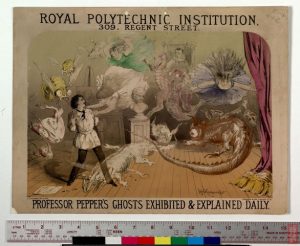 This chapter takes up Elizabeth Gaskell’s Cranford (1853), one of the classic examples of Victorian realism, in relation to the mid-nineteenth century discourses and practices of “natural magic.” Cranford is almost synecdochic with Victorian realism itself. It features an eminently sensible first-person narrator whose reports on the everyday happenings of the elder women in a small provincial town are representative of realism’s emphasis on observation and ordinary life. But while the novel has been thoroughly interpreted by generations of literary critics, scholars have never fully explored or provided historical contextualization for the character of Signor Brunoni, an itinerant conjurer who performs two magic shows over the course of the novel. My chapter situates Cranford in the booming mid-nineteenth century stage magic and optical illusion industry, focusing on its relationship to Letters on Natural Magic, David Brewster’s seminal work on magic from the perspective of science and technology. In so doing, it argues that Gaskell draws on discourses of magic and optical entertainment to theorize fictional narration as a style of conjuring.
This chapter takes up Elizabeth Gaskell’s Cranford (1853), one of the classic examples of Victorian realism, in relation to the mid-nineteenth century discourses and practices of “natural magic.” Cranford is almost synecdochic with Victorian realism itself. It features an eminently sensible first-person narrator whose reports on the everyday happenings of the elder women in a small provincial town are representative of realism’s emphasis on observation and ordinary life. But while the novel has been thoroughly interpreted by generations of literary critics, scholars have never fully explored or provided historical contextualization for the character of Signor Brunoni, an itinerant conjurer who performs two magic shows over the course of the novel. My chapter situates Cranford in the booming mid-nineteenth century stage magic and optical illusion industry, focusing on its relationship to Letters on Natural Magic, David Brewster’s seminal work on magic from the perspective of science and technology. In so doing, it argues that Gaskell draws on discourses of magic and optical entertainment to theorize fictional narration as a style of conjuring.
“Becker the Obscure: Modeling Human Capital” || a talk by Elaine Hadley
Professor of English, University of Chicago
In lieu of a pre-circulated paper, Professor Hadley has provided short selections from Thomas Hardy’s Jude the Obscure to be read in advance, which are available under the “Materials” tab with a password circulated to our listserv.
“A Natural History of Violence: Allegory and Atomism in Shelley’s The Mask of Anarchy” || Amanda Jo Goldstein
Assistant Professor of English, Cornell University
“Landscape with Figures: Reimagining the Forest” || Allison Turner
“Inventing the Holocene: Climate, Deep Time, and Civilization in Victorian Britain” || Fredrik Albritton Jonsson
Associate Professor of History, University of Chicago
Thursday, April 20, 2017
“Describing Murder: Anna Katharine Green’s Criminal Procedure” || Thomas Dikant
Post-Doctoral Student, University of Chicago
“Orfeo, or Castrati of Sensibility” || Jessica Peritz
Thursday, March 9, 2017
“Wordsworth’s Obscurity” || Anahid Nersessian
“States of Undress: The Eroticism of Clothing in the 18th-Century Novel” || Katie Nolan
PhD Student, University of Chicago
Thursday, January 12, 2017
“Matthew Lewis and the Gothic Face” || Sam Rowe
A discussion of Irene Tucker’s “Kant’s Dermatology; or, The Racialization of Skin,” in The Moment of Racial Sight: A History (Chicago, 2012)
Thursday, November 3, 2016
“Metafictionality and the Liminal in George MacDonald’s ‘The Golden Key'” || Ian Caveny
George MacDonald, a Victorian-era Scottish writer, is a figure perhaps best well-known for those he influenced–C.S. Lewis, Lewis Carroll, W.H. Auden, J.R.R. Tolkien–than for his own works. In this essay, I propose a novel reading of one of MacDonald’s most well-received short stories, “The Golden Key,” problematizing the classical readings of the text through Robert Lee Wolff’s psychoanalysis and Christian academia’s soteriological interpretation. Instead, I suggest a reading of the text through the lens of “reading”–that is, the metafictional–bringing MacDonald’s fictional work into context with his nonfiction essays on the imagination and reading. Alongside this, I argue that MacDonald suggests an intrinsic relationship between “reading” / the metafictional and “liminality,” leading me into a discussion describing MacDonald’s thought as proto-narratological and setting him as an intellectual predecessor–albeit, a distant one–to the narratology of Gerard Genette and more recent theorists such as Thomas Pavel and Marie-Laure Ryan.

